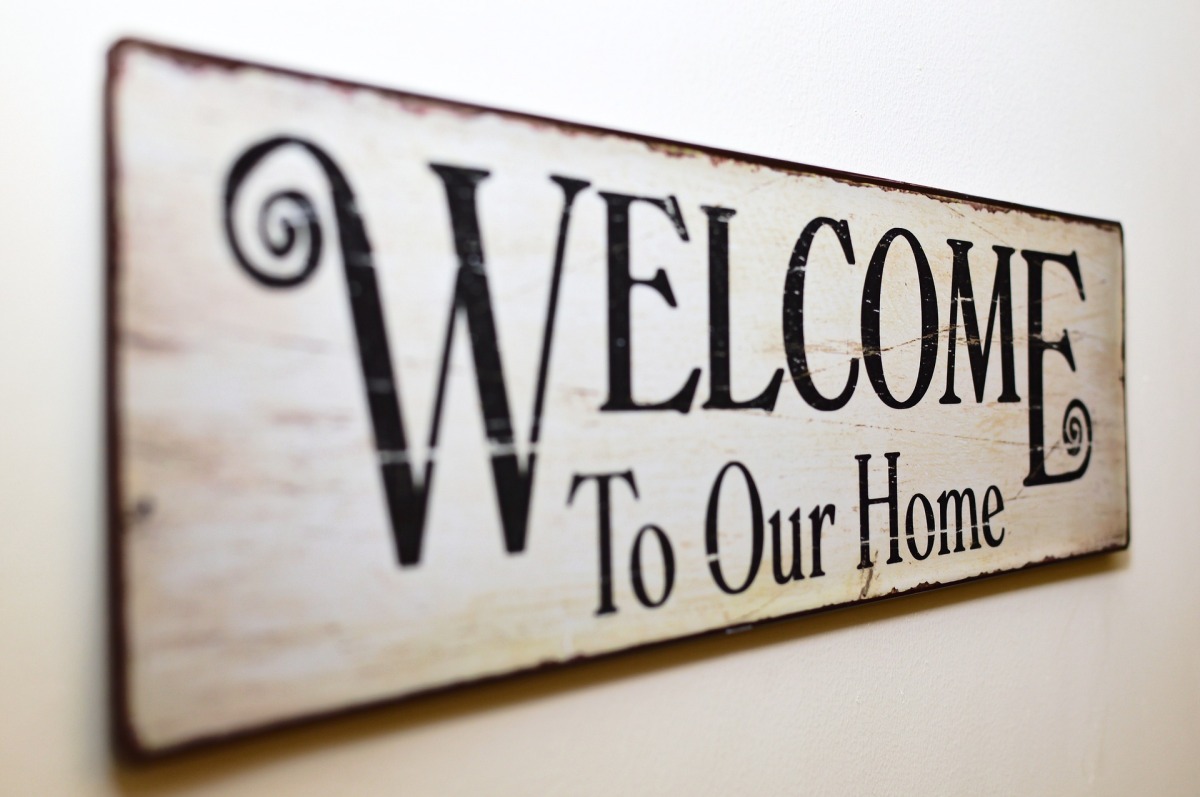In case it’s not abundantly obvious to the reader, the welfare state has been an unmitigated disaster. Despite almost a hundred years of promises that we will use the power of the government to lift people out of poverty, it has never worked. As Reagan once said:
For… decades, we’ve sought to solve the problems of unemployment through government planning, and the more the plans fail, the more the planners plan.
Barack Obama is fond of the pseudo-quote: “The definition of insanity is trying the same thing over and over expecting different results.” Socialism and progressivism has never solved the problem of poverty and never will. These programs, in ever shifting forms, have existed since FDR and we still have poor people.
There are a lot of problems with the welfare state in its current form. Part of the issue is that, for purely political reasons we have to make sure that only “deserving” people get help from the government. Never mind the fact that we waste billions of dollars a year trying to figure out who is “deserving” and still get it wrong.
Let’s make an analogy: two men are before you, begging for 5 dollars. One is a con artist. The other really needs it. So you pay a third guy 5 dollars to help you figure out which one of these guys is which, so you only give out the 5 dollars to the one who needs it.
Does that make any sense? Obviously not. It’s an enormous waste of human effort. I understand the purpose and intent, but it is a fool’s game to think that we will ever be able to figure out who really “deserves” help on such a massive scale. There will always be fraud and there will always be abuse of the system. To imagine otherwise is to fantasize that we have powers of prognostication that we do not, in fact, have.
Because who really deserves it? The lazy? The incompetent? How disabled is “disabled enough”? Who are you, or I, to decide that? What if a person had a bad business deal fall through, should they get assistance? A single mother of two? What about a woman who has a baby so she can get extra welfare? How do you distinguish between them?
Obviously any attempt to distinguish will be imperfect. So some who are undeserving will get help and some who deserve it will be missed. The waste of administering these programs is enormous.
But I wanted to talk about solutions, not just problems. I will point out that few of these ideas would work, but we don’t know unless we discuss them. Even fewer would have political traction, but then again, 200 years ago income tax wouldn’t have had political traction.
1. Hire people to haul rocks from one end of a field to the other. Sure, it’s a waste of time and energy, but if we really need jobs, at the exclusion of all else, we could just hire people to do this. If you really need money, and you don’t have the skills or ability to do anything useful that someone is willing to pay you for, we could just hire them for some menial terrible task that no one wants to do. If they can’t haul rocks, let them bend paper clips. I mean, if you can find something useful for them to do, have them do that, but at least have them do SOMETHING for the money they get.
The advantage to this approach is that no government agency decides whether a person deserves help. The person just comes and gets the terrible job. They get enough money to live on and if they decide its not worth the effort then we don’t have to kick them off welfare. No one could complain that we are subsidizing the lazy. There would be less fraud because people would actually have to show up to work to get their money. They couldn’t be doing something else on the side while collecting benefits. Anyone who is currently employed in administering benefits could instead haul rocks alongside the rest of them.
This isn’t ideal, I know, but its a million times better than simple transfer payments.
2. UBI. If the problem is that poor people don’t have enough money, why not just give them money? UBI stands for Universal Basic Income. Imagine if every American citizen got 1000 dollars a month, not taxed, just for being alive and over the age of 18. This would stop poverty for a lot of people. Add that to a part time job making 5 dollars an hour and you have ~20k a year. We could drop the minimum wage, which would increase incentives for companies to move manufacturing back to the country, creating more jobs. People might move to more rural areas, seeing that the cost of living is so low, and they don’t have to live in fear of how they might support themselves. In general, you’d see a lot more mobility. If someone wants to pursue a new venture that may or may not pay off, they have a solid foundation on which to do so. They may not be rich and happy, but they will not starve in the streets. If someone wants to just make music that never enriches them, that is a possible road they can travel.
It may seem like this would be impossible to fund, but it would actually be cheaper than what we currently spend on various transfer programs. And even if it were a little more expensive, at least this would actually just flat out end poverty. We could stop talking about the poor and people who need our help and move on to other problems. If it meant a 5% increase in my taxes to really, actually seriously end poverty, I would be down for it. But realistically it wouldn’t need to cost me so much.
I actually should write a whole article on this, because there are good reasons to think our economy would boom under a UBI, making it even cheaper to implement in terms of tax rates. It would also stop much of the illegal immigration problems, since the UBI would only be available to citizens.
3. Forced charitable giving. Okay, so much of the taxes we pay is to pay for other people to live who are, for whatever reason, unable to support themselves. So instead of terrible government initiatives to help the poor, provide education or health care, etc, why don’t we just make all charitable giving apply as a non-refundable tax credit. If you already give to the poor through charity, why does the government need you to give more to the poor through them? It’s obvious that charitable organizations do more good for people than the government ever did on a per-dollar basis. They actually know what they are doing. There would be some competition for those charitable dollars. If you thought the charity was wasting your money on useless crap, then you could give your money to someone else.
The way this would work is, if you have to pay 30k in taxes, you could instead choose to give 30k to charity and pay no taxes. I mean, you have done your part for the poor, right? What’s the problem there? The obvious concern would be that some of these charities might not spend the money well, but we KNOW that the government doesn’t spend the money well, and we’ve been living with that for years! Why not give people the option to opt out?
I’m sure there’s tons of different approaches that we could take to the welfare state. Some of the ideas will work well, others will fail miserably. Why not give something else a chance? Of course, we all know that the real answer is corruption. Seriously, is there a doubt in anyone’s mind that the reason we have such a big welfare state is because 4 trillion dollars a year flows through Washington and everyone wants their taste? Whether its the insurance companies that, under Obamacare are following the Fannie Mae model of “privatize the gains, socialize the losses” or the sugar farmers who benefit from the sugar quotas, everyone gets a little bit of your money. So little of it really filters down to the truly needy. It’s no wonder that the government has failed, time and again, to end poverty.
Now I’m sure you can find idiotic articles that claim we spend very little on welfare. But I challenge you to look at the federal budget. Social Security is a form of welfare. That’s ~2.5 trillion right there. Medicare, Obamacare, most education. A lot of scientific budget ends up just paying people who are studying something that is politically advantageous. Food and Agriculture, Housing. These are all indirect, but they are still a form of welfare. It is still redistributing money or goods.
Don’t get me wrong, I’m not saying that these people don’t need help, or deserve it. I’m not saying welfare is inherently wrong or bad. I’m saying the way we are going about it flat out does not work.
I’m going to end this post with a great quote from Buck Sexton, a podcaster and radio host I like:
These people that think that Hillary Clinton is gonna do all these amazing things for them… she’s not gonna make their lives any better. She’s not gonna really help them. I mean, a slightly more generous welfare benefit is not gonna dramatically improve anyone’s life. Pushing Obamacare further down – is gonna make people’s healthcare worse actually for the most part, right? It’s gonna create shortages in the system which leads, in one form or another to rationing. Then you just have to get private care and now your “healthcare” is not really worth anything because only crappy practitioners are in it… Never mind Bernie Sanders [who just says] “these millionaires and billionaires, we gotta stop them!”… How do they – that doesn’t – that doesn’t affect your life one whit one way or the other. It doesn’t help you, it doesn’t affect you, it’s nothing!
It’s a distraction. It’s just worthless demagoguery. It’s stopping the rise of the seas. It’s “hope and change”, it’s nothingness. It’s really almost a form of nihilism because nothing comes from any of this. I feel bad for a lot of these people who stand up for these democrats and say “Oh but… they’re gonna do this amazing job, they’re gonna do all this great stuff. They’re gonna do all these amazing things for us.”
No they’re not! They’re really not! What amazing stuff did Barack Obama do for all of us?
Conservatives don’t hate poor people or black people or anyone. We just have looked at the ridiculous awful idiocy and come to the only reasonable conclusion. It. Just. Doesn’t. Work. It can never work.
Let’s get our brains together and try to think of something that will.





